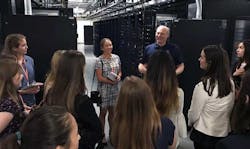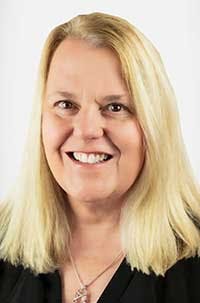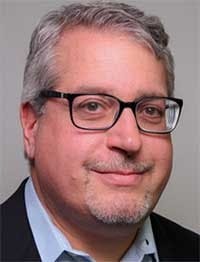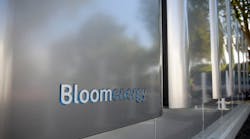Roundtable: Is The Data Center Industry Making Progress on Diversity?
The movement to improve diversity, equity and inclusion in the data center business has been under way for some time now. Are we making progress? What strategies could yield better results? We posed these questions to our Data Center Frontier Executive Roundtable.
Our panelists include Phillip Marangella of EdgeConneX, Shannon Hulbert from Opus Interactive, Schneider Electric’s Steven Carlini, Nancy Novak of Compass Datacenters and Infrastructure Masons, Rob Rockwood from Sabey Data Centers and Brad Furnish of TMGCore. The conversation is moderated by Rich Miller, the founder and editor of Data Center Frontier. Here’s today’s discussion:
Data Center Frontier: After several years of active discussion of diversity and inclusion, how is the data center industry doing? What additional steps are needed to make a bigger difference?
NANCY NOVAK, Compass Datacenters and iMasons
Nancy Novak: The need to change the face of the data center industry has met with increasing awareness and acknowledgement over the past few years. I think that the work of organizations like iMasons has contributed greatly to making companies aware of the availability of reservoir of talent that has been increasingly overlooked.
Certainly, increased attention to encouraging more women and minorities to pursue STEM-related coursework and careers is beginning to establish a pipeline of future data center employees and leadership. Naturally, these efforts must continue and there is also an onus on existing women in leadership positions to provide the mentorship needed to those just beginning their careers if these efforts are ultimately going to be successful.
Personally, I think one area that is impeding our D&I efforts is “credentialism”. By this I mean positions where having a degree in a field is a pre-requisite for even being considered. Naturally, this makes sense in very technical areas (engineering for example), but, if we’re being honest, experience is really the better predictor of job success. If industry D&I efforts are really going to succeed, companies need to stop thinking in conventional terms of hiring and place greater value on actual experience, rather than using degrees to establish artificial hiring barriers.
SHANNON HULBERT, Opus Interactive.
Shannon Hulbert, Opus Interactive: To be in the data center and cloud industry of today is to be a pioneer of connectivity. The information superhighway is currently under construction and driven by a culture of innovation. This new era, where traffic is doubling every four years is constantly looking for faster, more efficient, more resilient solutions – so change is a welcome constant because change is how you get faster, more efficient, and more resilient.
This adoption of cloud is happening at a similar pace around the world, with the understanding that different regions have different needs. Different people have different needs. In relation to that, the industry has recognized very early on that you need a diverse workforce to solve for our growing global community.
Of course, we can do better! I have 3 key focuses:
- Expand awareness and adoption of allyship. We all have a unique path that took us ‘to the cloud”. The diversity of roles, education, upbringing, and culture bring a unique set of skills to every role that is filled.
- Increase STEM education. Kids in STEM become team members in Tech
- Support for women in tech. Women represent just 25% of the roles in the industry.
PHILLIP MARANGELLA, EdgeConneX
Phillip Marangella: We wouldn’t claim to be the best source for how the data center industry is doing overall, but it’s clear that we can all do better and do more.
From our perspective, however, diversity and inclusion are calls to action and we have taken concrete steps to improve our workplace and our outreach. Key initiatives include establishing and taking a key role in the Capstone project, aimed at HBCU (Historically Black Colleges & Universities) students in conjunction with iMasons, including recruiting, hiring, and placement assistance. We have also seen WomenConneX, a grassroots effort to recruit more women into our company and into the STEM field more generally, with regular conversations where participants can share experiences, progress, and challenges for women in the technology industry.
And our expansion into new regions around the world has afforded us the opportunity to hire and collaborate with staff and partners from diverse cultural and national backgrounds, bringing with them fresh ideas and an awareness of what makes these markets unique. These markets may be new to EdgeConneX, but they have rich histories, cultures, and business traditions that are rapidly being incorporated into our broader, more diversified company identity as we collaborate and learn from each other.
But, still, we need to do more. Conferences should be featuring a more inclusive community of speakers and panelists, tech publication bylines should feature a wider array of voices, and opinions that don’t fit the common wisdom should be heard more, celebrated more, and given more chances to evolve and thrive. Over time, they can often contribute to an improved common wisdom that will, itself, need to be challenged. It’s in our corporate DNA to be disruptors, always working to find the best ways to deliver for our customers, and we know that’s only possible when you allow new ideas to be heard.
BRAD FURNISH, TMGCore
Brad Furnish: There has been a lot of discussion around diversity and inclusivity within the data center industry and we are making fantastic progress! We still need to continue to improve in this area and there will need to be continual focus, evolution and progress in the years to come. It is incredibly exciting to see the industry emphasis on attracting/retaining more and more people from all walks of life with the various backgrounds and experiences. Adding in the development of networking and support groups to insure everyone has an equal opportunity and mindset to push this industry forward is inspiring and extremely beneficial.
There is no question that having a more diverse and inclusive industry allows us to reap the benefits of various mindsets and experiences collaborating to positively impact the future! As we move forward, we need to continually promote optimal hiring, ongoing training, and knowledge transfer processes within our current organizations. Additionally, we need to continue to support groups like Women in Technology and also be more active members in our communities to promote STEM initiatives. There are countless opportunities for us to provide resources, mentorship, connections, and support to immerse the current generation and future generations in the world of technology.
Additionally, as industry we need to continue to spotlight, highlight, and provide additional opportunities for women and culturally diverse individuals to speak publicly and become role models for the current and upcoming generations. There are great strides being made, and we need to continue investing and promoting the opportunities within our industry.
ROB ROCKWOOD, Sabey Data Centers
Rob Rockwood: The data center industry has been among the most purposeful and successful in addressing workforce diversity. In an industry that lends itself to on-the-job training and promotion up through the ranks, companies like Sabey have hired leadership trainers to specifically facilitate this process. This mobility allows employees of any demographic to join data center organizations at entry levels across security, operations, sales, and IT and progress as far as their drive will take them.
Data center companies should grow partnerships that encourage data center-related educational programs at nearby institutions and improve diversity and inclusion at large in their communities.
STEVEN CARLINI, Schneider Electric
Steven Carlini: At Schneider Electric, data centers represent 16% of our business. Our ambition is to offer equal opportunities to everyone everywhere, and we want our employees —no matter who they are or where they live —to feel uniquely valued.
For the 5th year in a row, Schneider Electric has been included in the Bloomberg GEI, promoting public commitment to equality and advancing women in the workplace. Schneider Electric is one of 418 global companies and one of 20 in the industrial sector. By embracing differences, Schneider Electric builds a culture of respect where everyone feels safe to be their authentic selves. We are 100% committed to inclusion and our policies reflect this commitment to our employees. On July 1, 2021, our Executive Committee passed an important milestone: seven of its 16 members (44%) are women. That means Schneider Electric will be led by one of the most gender-balanced senior management teams among the 40 biggest listed companies in France. In fact, this is in spite of the fact that we operate in a sector that is not typically very gender balanced.
As part of our 2025 sustainability goals, Schneider Electric has committed to ensuring that 50% of new hires are women. That’s up from around 43% now. We also aim to improve our hiring practices so that 40% of our frontline managers and 30% of our senior leaders are women, up from about one-quarter now.
NEXT: What role will microgrids play in the future of the data center industry?
Keep pace with the fact-moving world of data centers and cloud computing by following us on Twitter and Facebook, connecting with DCF on LinkedIn, and signing up for our weekly newspaper using the form below:
About the Author








